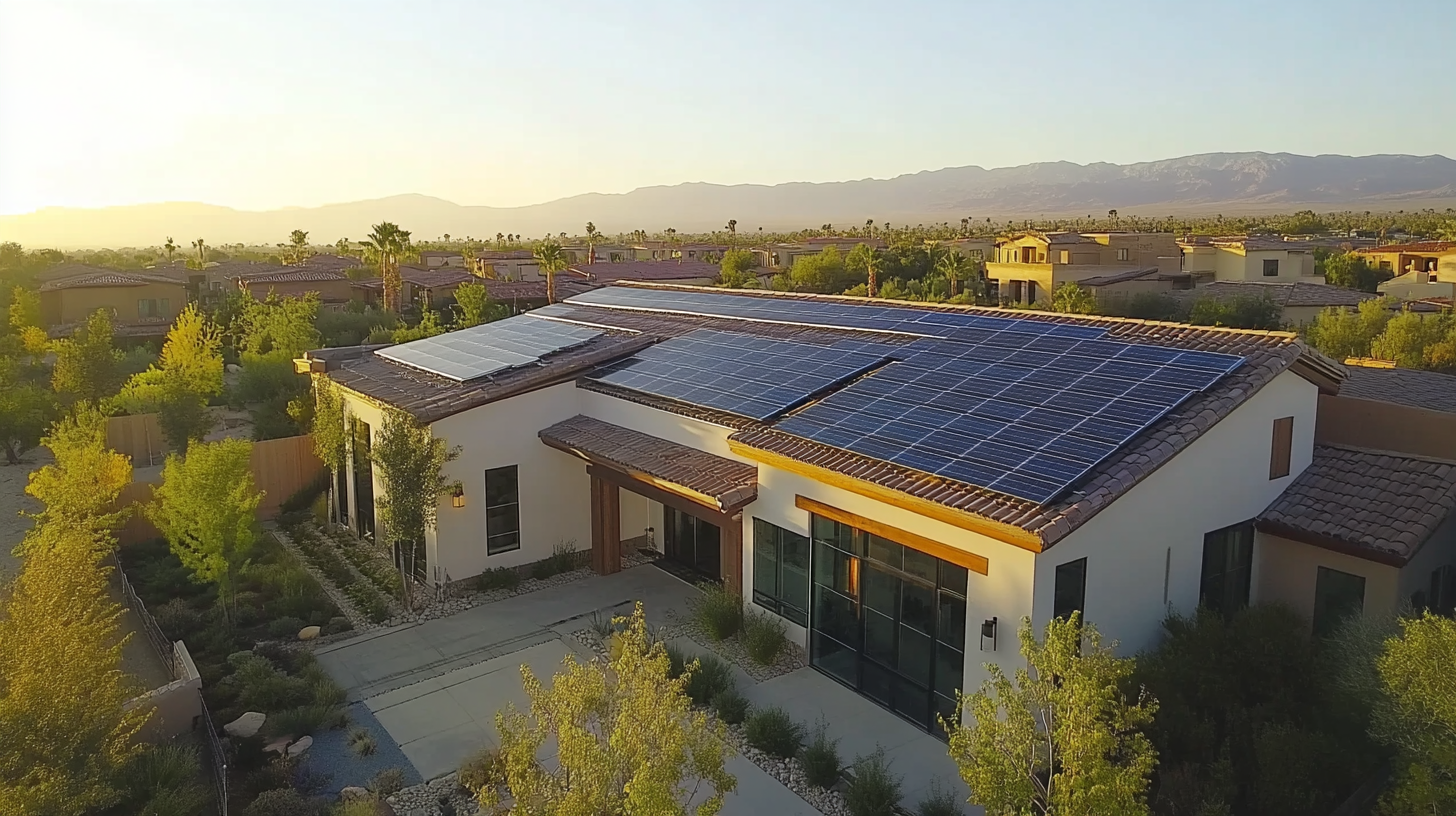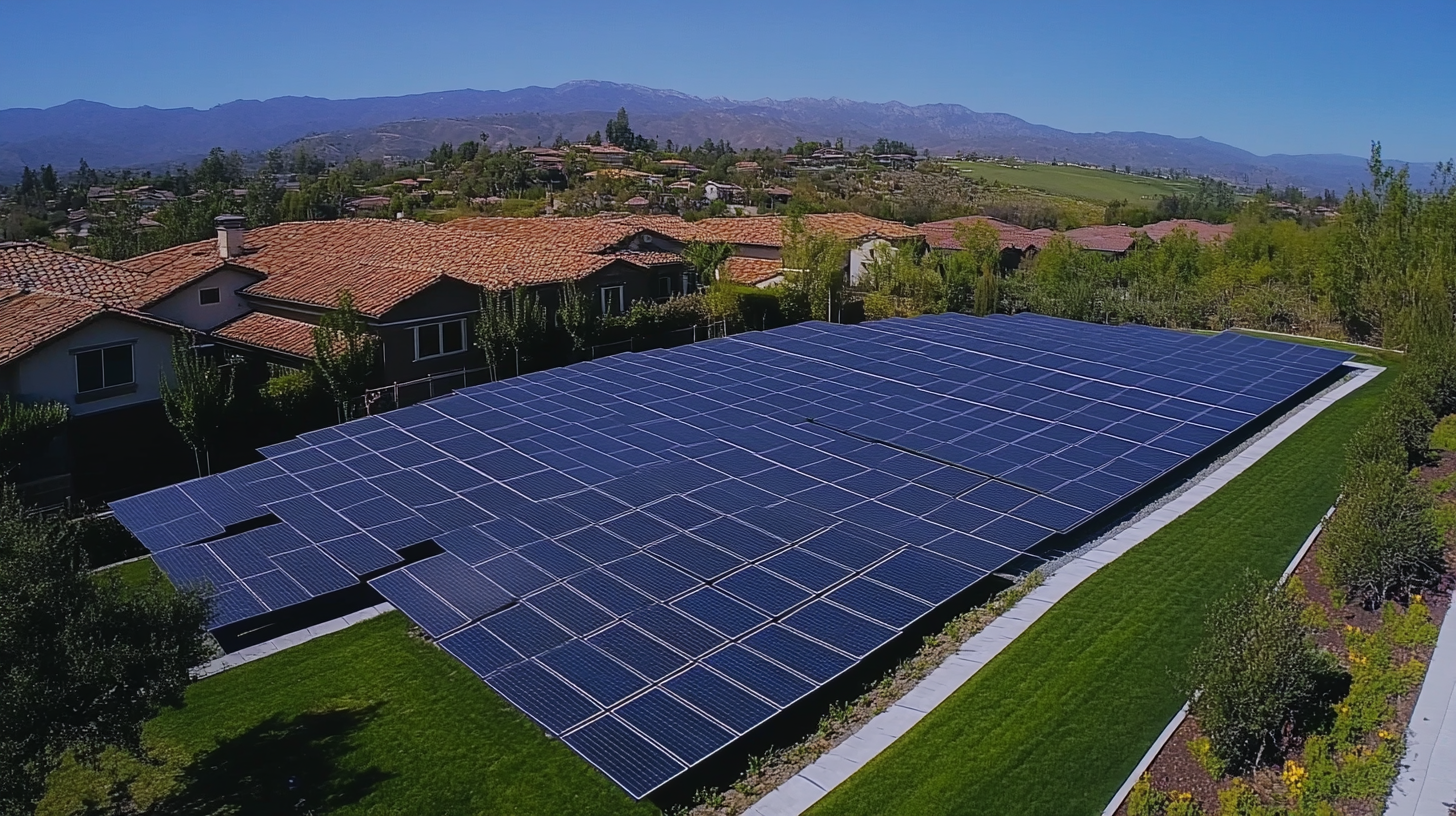Blog
- Home
- Blog
Selecting the Right Manufacturer for High-Performance Power Solar Panels
The solar energy market has witnessed substantial growth in recent years, with the global installed capacity of solar photovoltaic (PV) systems reaching approximately 1,000 gigawatts by the end of 2022, according to the International Energy Agency (IEA). This burgeoning demand for renewable energy has led to a heightened interest in high-performance power solar panels, as they offer enhanced efficiency and durability. As solar technology advances, selecting the right manufacturer for these panels becomes increasingly critical to achieving optimal energy output and long-term investment returns.
Choosing a manufacturer is not merely about seeking the lowest price; it involves a careful evaluation of various factors such as product quality, reliability, and technological innovation. According to a report by BloombergNEF, high-efficiency solar panels can deliver up to 25% more energy over their lifetime compared to standard panels. This statistic underscores the importance of partnering with a reputable manufacturer that not only meets industry standards but also stays at the forefront of technological developments. By making an informed choice, consumers can ensure they harness the maximum potential of power solar panels, paving the way for a sustainable energy future.

Identifying Key Features of High-Performance Power Solar Panels
When selecting high-performance power solar panels, it's essential to identify key features that distinguish them from standard options. One of the most critical factors is efficiency—defined by the panel's ability to convert sunlight into usable electricity. According to the National Renewable Energy Laboratory (NREL), the average efficiency of commercially available solar panels ranges between 15% to 22%, but some high-performance models exceed 24%. This efficiency can significantly impact the overall energy output and return on investment for consumers. Another vital feature is the panel's durability and performance under various environmental conditions. Manufacturers often provide performance warranties ranging from 25 to 30 years for high-performance panels. A report by the Solar Energy Industries Association (SEIA) indicates that panels designed for harsh climates can maintain up to 90% of their rated output even after 20 years, ensuring long-term reliability. It's crucial to consider the materials used in the construction of the solar panels—high-efficiency monocrystalline cells typically offer better performance in low-light conditions compared to their polycrystalline counterparts. Lastly, monitoring and energy management features are increasingly important in today's technological landscape. Many high-performance solar panels come equipped with smart technology that allows users to track performance and energy production in real-time. These advanced systems can lead to better energy management and savings, as suggested by a report from Wood Mackenzie, which notes that smart solar solutions can enhance system efficiency by up to 30%. By focusing on these key attributes, consumers can make informed decisions when selecting a manufacturer for high-performance power solar panels that best fit their needs.

Evaluating Manufacturer Reliability and Reputation
When selecting a manufacturer for high-performance solar panels, evaluating their reliability and reputation is crucial. A manufacturer's reliability often reflects their commitment to adhering to industry standards and producing durable, efficient products. To assess reliability, consider factors such as the manufacturer’s production history, warranty offerings, and customer reviews. An established manufacturer will typically provide a robust warranty, which not only demonstrates confidence in their products but also serves as a safeguard for your investment.
In addition to reliability, a manufacturer's reputation can significantly impact the quality of the solar panels. Companies with a longstanding reputation in the solar industry usually have undergone rigorous testing and validation processes, ensuring that their products meet the latest technological advancements and regulatory requirements. Researching the manufacturer's standing within industry circles can provide insights into their adherence to ethical practices and innovation. Engaging with experienced users or consulting independent reviews can reveal how well the products perform over time.
Moreover, transparency in communication and customer support from manufacturers can further enhance their reputation. A manufacturer that prioritizes open dialogue and promptly addresses concerns demonstrates a commitment to not just selling a product but fostering a long-term relationship with their clients. By focusing on these aspects, you can make an informed decision and choose a manufacturer that will provide high-performance solar panels tailored to your needs.

Assessing Technology Innovations in Solar Panel Production
In the rapidly evolving solar industry, technology innovations play a crucial role in enhancing the performance and efficiency of solar panels. Recent reports from the International Renewable Energy Agency (IRENA) indicate that the average efficiency of solar photovoltaic (PV) modules has increased from approximately 16% in 2010 to around 22% in 2022. This significant improvement is largely attributed to advancements in cell technology, such as the adoption of PERC (Passivated Emitter Rear Cell) technology and bifacial solar modules, which capture sunlight from both sides, thereby optimizing energy harvest.
Manufacturers that invest in research and development are often at the forefront of these technological breakthroughs. According to a report by the National Renewable Energy Laboratory (NREL), innovative manufacturing processes, including automated production lines and high-throughput cell fabrication, have reduced production costs and increased yield. As a result, some manufacturers are reporting a decrease in cost-per-watt from $3.50 in 2010 to below $1.00 in 2022, making solar energy more accessible to consumers and businesses alike.
Furthermore, the integration of smart technologies into solar panel production is reshaping the industry. For instance, real-time monitoring systems utilize artificial intelligence to enhance quality control during manufacturing, which minimizes defects and ensures high-performance standards. A study by BloombergNEF highlights that manufacturers employing such smart technologies can increase production efficiency by up to 30%, reinforcing the importance of selecting a manufacturer that prioritizes innovation and quality in solar panel production.

Understanding Warranty and Support Options Offered by Manufacturers
When selecting a manufacturer for high-performance solar panels, understanding the warranty and support options offered is crucial for ensuring long-term satisfaction and productivity. A robust warranty can act as a safety net, protecting your investment against potential issues that may arise after installation. Many manufacturers now recognize the importance of extended warranties, reflecting a growing trend in the market that is projected to reach over USD 133 billion by 2030, with a significant growth rate.
Typically, warranties come in various forms, including basic manufacturer warranties and extended warranties. The latter can provide additional coverage, extending the protection for up to 10 years, which is particularly beneficial in managing maintenance costs and ensuring optimal performance. It’s essential to consider the details of these warranties, such as what is covered and any limitations that may apply. Some manufacturers may offer comprehensive support options, including regular maintenance checks and customer support lines, which can be invaluable for users unfamiliar with solar technology.
Furthermore, it is advisable to evaluate the service reputation of a manufacturer. A well-supported warranty, coupled with strong customer service, ensures that you can resolve any issues effectively. This dual focus not only gives consumers peace of mind but also affirms the manufacturer’s commitment to quality and customer satisfaction, ultimately influencing your decision in selecting the right solar panel manufacturer for your needs.
Comparing Pricing Models and Cost Effectiveness of Solar Panels
When selecting the right manufacturer for high-performance solar panels, understanding the pricing models and cost-effectiveness is crucial. Solar panel costs have seen significant changes in recent years, with solar energy becoming more competitive compared to fossil fuels. A comprehensive analysis shows that, on average, the levelized cost of electricity (LCOE) for solar has declined to around $30 to $60 per megawatt-hour in various regions, making it an appealing option for residential and commercial users alike.
In addition to the initial investment, the long-term performance and warranty coverage of solar panels are essential factors influencing cost-effectiveness. For instance, the latest industry reports highlight that the most efficient residential solar panels available now demonstrate efficiency rates exceeding 22%. Manufacturers offering comprehensive warranties—typically around 25 years—can enhance the overall value proposition, ensuring that consumers maximize their return on investment over the panel's lifespan.
Furthermore, an informed comparison of different solar panel brands and models can lead to substantial savings. A detailed side-by-side comparison of technical specifications and pricing indicates that selecting the right model can yield electricity cost savings of up to 50% compared to traditional energy sources. As solar technology continues to evolve, customers must remain vigilant in evaluating options that not only fit their budget but also align with their performance requirements for future energy generation.
